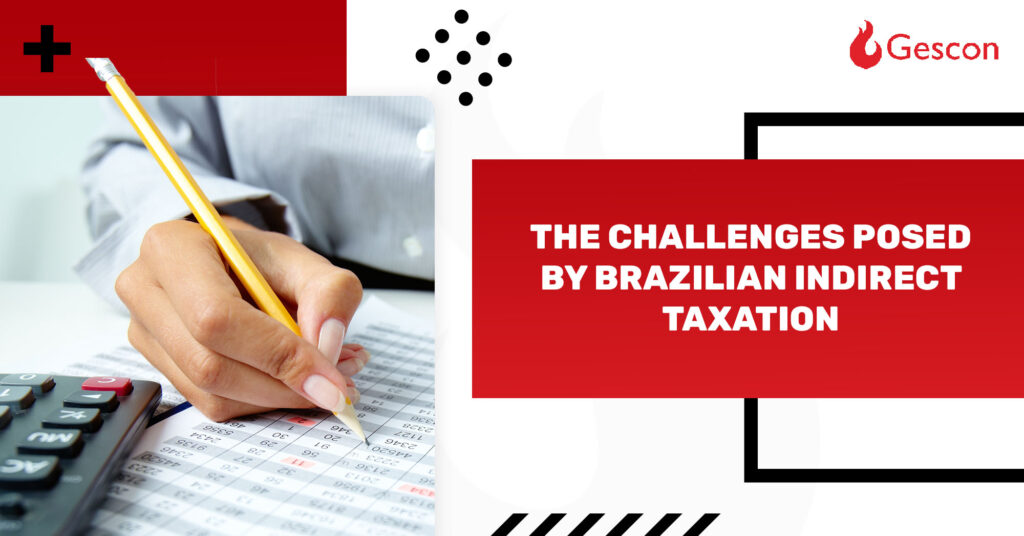Address
304 North Cardinal St.
Dorchester Center, MA 02124
Work Hours
Monday to Friday: 7AM - 7PM
Weekend: 10AM - 5PM
Address
304 North Cardinal St.
Dorchester Center, MA 02124
Work Hours
Monday to Friday: 7AM - 7PM
Weekend: 10AM - 5PM


The Brazilian tax system is certainly one of the most complex in the world. With about 83 different tax types, Brazil imposes a series of different obligations and systems on the business community, which significantly impact what we commonly call “Brazil Cost”.
One of the reasons for such complexity lies in the Federal Constitution itself. It is in the Brazilian constitution that the powers of states, municipalities and the Union in relation to the administration of different taxes are established.
In today’s article, we are going to talk about the elements that make up indirect taxation, which is undoubtedly where much of the aforementioned complexity of taxation practiced in Brazil resides. To learn more about it, continue reading.
The Tax on Circulation of Goods and Services, or ICMS, is a state tax that, broadly speaking, is similar to the US VAT. This tax type has as a triggering event the circulation of goods, or the performance of certain types of service – notably, services related to interstate operations within the country.
Its system is non-cumulative, and its calculation basis is defined by the difference between the entry and exit of goods or services. It is, therefore, a tax that is levied on the added value. Its complexity comes from its variety.
Brazil is a country made up of 26 states and the Federal District. Each federation unit is, according to the constitution in force since 1988, responsible for disciplining all ICMS levies, defining individualized rates by products, as well as specific credit appropriation and collection systems.
Each state has its own collection and control structure, which means that this type of tax, in practice, corresponds to 27 different systems. In recent years, much has been done to unify ancillary obligations and forms of collection. Today, the main ancillary obligation of ICMS, Sped Fiscal, is federalized.
However, the particularities in terms of incidence, rates and administrative procedures still remain.
The Tax on Circulation of Goods and Services, or ICMS, is a state tax that, broadly speaking, is similar to the US VAT. This tax type has as a triggering event the circulation of goods, or the performance of certain types of service – notably, services related to interstate operations within the country.
Its system is non-cumulative, and its calculation basis is defined by the difference between the entry and exit of goods or services. It is, therefore, a tax that is levied on the added value. Its complexity comes from its variety.
Brazil is a country made up of 26 states and the Federal District. Each federation unit is, according to the constitution in force since 1988, responsible for disciplining all ICMS levies, defining individualized rates by products, as well as specific credit appropriation and collection systems.
Each state has its own collection and control structure, which means that this type of tax, in practice, corresponds to 27 different systems. In recent years, much has been done to unify ancillary obligations and forms of collection. Today, the main ancillary obligation of ICMS, Sped Fiscal, is federalized.
However, the particularities in terms of incidence, rates and administrative procedures still remain.
The ISSQN, or Tax on Services of Any Nature, is a municipal tax. This means that each Brazilian municipality is free to establish tax rates and collection and reporting systems. At the federal level, there is Complementary Law n. 116, which establishes certain parameters, such as the list of taxable services and the range of rates, which ranges from 2% to 5%. This prevents greater variations in a country that has more than 5,500 municipalities.
In practice, the calculation is not very complex. Its greatest complexity lies in the fact that each municipality has its own system, and its own collection document.
There are, however, infringing aspects. Through loopholes in Complementary Law n. 116, and dubious interpretations between what would be taxable by ICMS or ISSQN, there are issues that end up being judicialized by taxpayers. This is the case for certain asphalt paving services.
The Brazilian tax environment is, in fact, complex and challenging. There are proposals pending in the Federal Congress that promise simplification, with the union of PIS and COFINS under the Contribution on Goods and Services, and ICMS and ISSQN under the Tax on Goods and Services. Tax reform, however, has been moving slowly, largely due to the Brazilian political moment.
To stay informed about Brazilian taxation, count on Gescon’s experts.